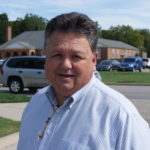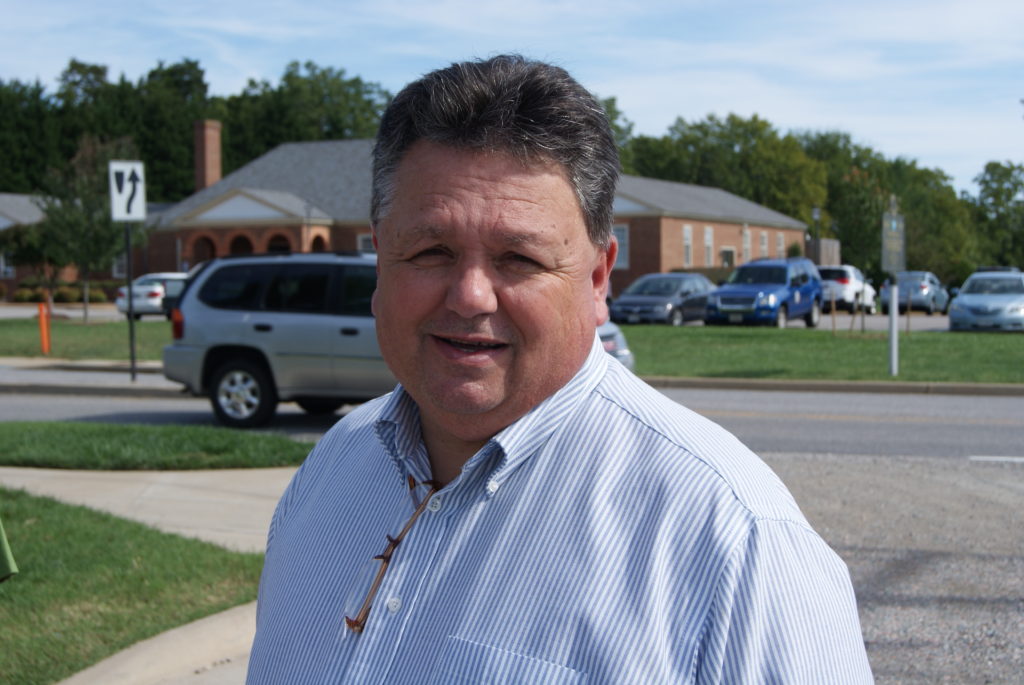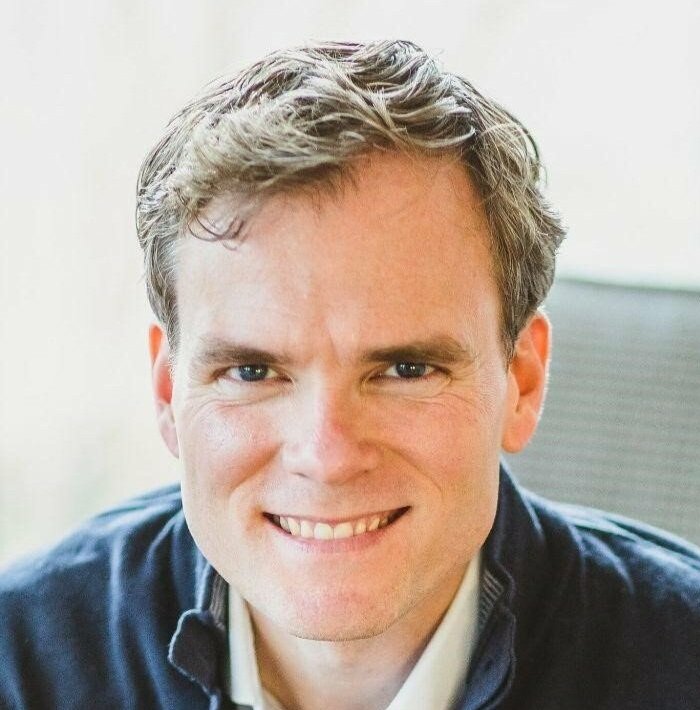by Gannon Sims
Powhatan, Virginia— A brief encounter with a coffee shop owner changed the way Greg Lemaster thinks about church. He’d learned the shop was struggling to make a profit and wanted to help. So he asked if the space might be used for an upstart church on Sunday mornings. Without hesitating, the owner of the coffee shop offered him a key to the building. Greg’s desire to help a struggling business uncovered a passion for ministry. On that day, Greg moved from church-goer to missionary.
 Greg has worshipped at Graceland Baptist Church for twenty years; the last five as the church’s part-time minister of outreach. With a weekly worship attendance of 250, Graceland is a thriving church. Their location in a growing area just west of Richmond almost guarantees congregational sustainability as churched families who move to the area almost always move their church membership as well.
Greg has worshipped at Graceland Baptist Church for twenty years; the last five as the church’s part-time minister of outreach. With a weekly worship attendance of 250, Graceland is a thriving church. Their location in a growing area just west of Richmond almost guarantees congregational sustainability as churched families who move to the area almost always move their church membership as well.
But Greg is helping the Graceland congregation see things differently. Slowly, they are beginning to see their church as a mission center for the surrounding community. And they’re going outside the walls of their church to people not reached by any church.
Greg started the process by asking a few people in his congregation to own and embody their faith in the local community. He encouraged a few folks to begin meeting in coffee shops and to invite people who would ordinarily meet them for coffee, but who might not meet them for church. The recipe for the group is simple and works in multiple settings.
1) Catch up with one another
2) A short reading and reflection from the Scriptures
3) A conversation about the Scriptures and how it applies to our daily life.
4) Prayers for the group members and for the people in the place where they are meeting.
Coffee talk and budget cuts
Peggy Lawhorne teaches children’s Sunday School at Graceland Baptist but she wanted an opportunity to meet for fellowship with other adults at a time other than Sunday morning. While she didn’t think she could handle another weekly commitment, she agreed to meet a couple of women from church for coffee “just once”. After experiencing the group, she convinced her boss to let her work from home on Thursdays so she could use her lunch hour to lead the group. One of the other women in the group worked at the county administration building and invited her co-workers. The County was going through budget cuts and she and her co-workers were experiencing difficulty at work because of the proposed cuts. Four of the co-workers joined the group because they needed support during a difficult time. Only one of them went to church. The rest were ‘de-churched’.
Since the group began, three of the four de-churched women have joined a church.
Peggy observes that “families are all feeling the pinch of these economic times, and the support that can come from people outside of the situation is beneficial to everyone involved.” While Peggy thought that meeting in a public space for prayer would be uncomfortable, she finds it thrilling to consider “the impact we might be making on the others in the coffee shop [because] you never know who’s listening.”
Popsicles and people who work on Sunday
A couple of years ago, Greg and the associate pastor at Graceland organized an outreach event at a Richmond apartment complex. The strategy was simple. They organized some games and handed out popsicles to the kids. A team of visiting missionaries who spoke Spanish were on hand to share a brief message with the people in the complex. Not only did they encounter Spanish speakers, they encountered people from many different nationalities. Some were from Latin America. Others were from Jamaica, Sudan, Nigeria and the Congo (DRC). To their amazement, 15 of the residents of the complex made decisions for Christ.
What Greg thought would be a one-time event has turned into a weekly ministry. Every Friday afternoon, a small group of internationals (some of whom met in the apartment complex that day) get together for church. They meet on Friday, because they (like 30% of people in the US) work on Sunday. Rose Ndaanee is thankful for a group that thirsts for Christian fellowship, but who can’t regularly make it to church on Sunday morning. They follow a pattern similar to that of the group in the coffee shop. This outreach has connected Graceland—a predominately Anglo congregation—with Colonial Place Christian Church, a predominately international congregation in neighboring Henrico County. “You know it’s a move of the Spirit, when all of these informal partnerships start to spread. A few months ago, we did not know any internationals. Now, we’re doing church together.” This group is beginning to function as a church in its own right. They regularly share the Lord’s Supper together and collect a weekly offering.
A house church for special-needs kids and their families
Greg is the father of a special-needs son. While Graceland is a welcoming place for his son, he wanted a place where his son could be as expressive as he needs to be. So he started a group in his living room using the same the four-step pattern. He thought his neighbors would be the first to join, but word got out and several other families with special-needs children who were uncomfortable bringing their children to a traditional church joined instead. On most Sundays, Greg and his family attend the early service at Graceland and then return home where they are joined by a little group of 12-14 others for Joy Church. It’s a place where parents can share their joys and concerns – and where their kids are free to praise the Lord as they are comfortable. At Joy Church, an outburst is a welcomed part of worship .
Greg is hopeful about the potential that Fresh Expressions will have on other churches like his. It doesn’t take a lot of money or a grand strategic plan to begin. It just takes a few people bold enough to think differently and a commitment to build a community of people shaped by the way of Jesus–one person at a time.


